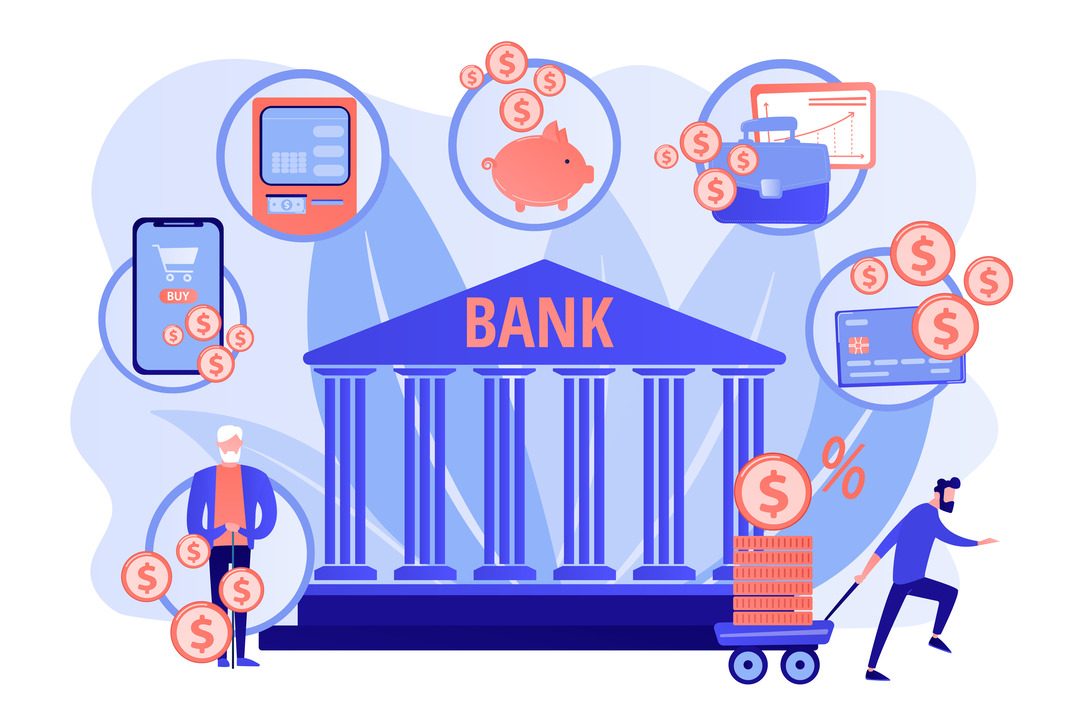The Evolution of Digital Banking: What's Next for Financial Institutions?

Today digital technology has changed the whole scenario of the banking landscape. Modern times have set such a scenario where people are in a positive position to get their banking issues settled without in actual fact visiting the bank in this regard. This direction, in turn, has been undergoing rapid remodelling with the arrival of AI-powered services and mobile payments, aggressively challenging each other to bring new records in convenience and access to the customers all over the world. This development paves the way further for yet another altogether new experience in banking all thanks to cutting-edge tech integrations in the form of Augmented Reality (AR), Virtual Reality (VR), and Artificial Intelligence (AI). In near future, the overall dynamics of banking will turn completely on its head with changing times, where leading-edge technologies are bound to make financial inputs management more direct, user-centric, and up-to-the-minute.
The Rise of Digital Banking:
The rise of digital banking is evident, as the migration from the traditional brick-and-mortar banking model into a digital one is enormous and happening rapidly. Now the customer is able to perform most of the transactions even with just picking the phone, the tablet, or PC like checking the balance or making a transfer at once. However, this has not only slashed the service cost for the customer but also, in many ways, the operational cost for the financial institution. Together with digital technology, it works best in enhancing transaction processing by bringing down costs and improving the speed to entail banks.
Driving Factors Behind Digital Transformation:
There are, however, several major reasons within this rapid adoption that are fuelling this technology inroads into banking: the rise of fintech start-ups, changing customer expectations, regulatory changes, and finally, the rise of technologies. Secondly, the growth of digital banking has developed with the increasing use of wide mobile devices and the internet, making financial services available to a much wider audience.
Banking Tech Revolution:
The digital revolution changes the old school banking norms and practices with its far-reaching benefits in the industry. Thereby, these are some of the digital technologies that improved the customer experience with the banking services offered through more convenient and accessible ways done over quite several digital channels. It has also improved operational efficiency, enabling financial institutions to process transactions faster and at lower costs. Further, it digitized technology-empowered banks by providing tailor-made services to customers through the vehicle of data analytics and machine learning algorithms, like most other online banks, in such a manner that there will be better bonding with the bank.
The Role of AI in Banking:
Artificial intelligence (AI) forms a part of the massive transformation that takes place in the nucleus, enabling banks to offer customers automation and insights into customer behaviour. Alongside machine learning algorithms changing the way chatbots and virtual assistants on artificial intelligence function to better customer service, these same tools are changing risk management with improved fraud detection mechanisms. More generally, the broader application of AI in banking raises certain ethical issues connected to bias, job loss, privacy, and transparency. This has brought about various ethical considerations that emphasize the very essence of making these financial institutions be responsible in their decision-making processes with regard to the use of AI.
Balancing Digital Convenience and Personalized Service:
As digital transformation unfolds in banks, an act balancing between digital convenience and personal service becomes imperative. Though offering the highest level of convenience in banking, unbeaten by any other kind of banking, there is still a segment of customers who appreciate the personal experience they get by visiting the branch. Two other disruptive innovations, augmented reality (AR) and virtual reality (VR), come in to offer immersive experiences that merge digital convenience with personal service.
Navigating Cybersecurity Challenges:
With the advent of dependence on digital channels for banking transactions, cybersecurity has placed itself in the midst of concern for financial institutions. Some of the security measures that need to be adopted by the banks, which include multi-factor authentication, encryption, and real-time monitoring, among others, help in securing customers' data, thereby not allowing any cyber-attack to happen. Besides, customer education on best practices of cybersecurity and frequent reporting on the threats should be taken as part of reducing these risks.
The Future of Digital Banking:
The future ahead seems wide open in regard to opportunities for innovation and development. 5G, IoT, and blockchain, along with quantum computing, shall prove to be the guiding light to a great future in reformation in the sector. On the one hand, with the 5G technology, banks will be able to serve their customers faster and even more reliably in mobile banking than ever before; on the other hand, it will be possible to offer personalized financial consulting and, based on that, individually tailored products. Whereas blockchain technology proposes secure and transparent transactions on the one side, quantum computing opens doors for banks to solve problems way beyond their current capability.
Conclusion:
The evolutionary trend of digital banking is symbolic of the transformation toward a brighter future for banking. It allows more space for the growing new technologies that give a chance for the revolution of services both to customers and modern business. The dynamics in the banking industry are changing, and keeping updated with the latest trends calls for much more flexible, hassle-free, and accessible services, paramount towards creating an improved banking experience for all. To effectively implement all such technological advancement from time to time, you will require an software and automation service provider. Thus, Arena Software’s comes into picture that has specialization in this field and has more than a decade of experience in providing such services. Therefore, join us in this thrilling journey of change and redefine your future of banking with technology.
